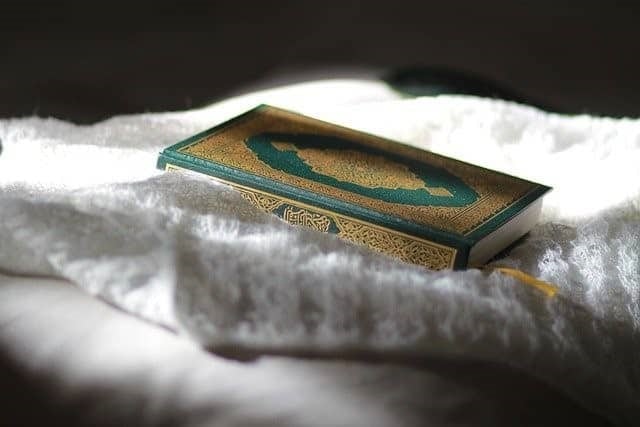Why Does the Qur’an Say Allah Misguides the Disbelievers? The Question of Free Will
Answered by Shaykh Idris Watts
Question: Why does the Qur’an say that Allah subhanuhu wa ta’ala misguides the disbelievers? I was under the impression that they chose disbelief. Or is Allah subhanuhu wa ta’ala saying that he sends Shayateen or Shaitan after these people?
Answer: Allāh misguides people due to His knowledge of their states and due to the choices that they make and act upon in their lives. Hence, this does not contradict freewill. Allah all-Mighty says in the Holy Quran:
“Allāh does not disdain to use the similitude of a gnat or something greater. Those who believe know that it is truth from their Lord; but those who reject Faith say: “What does Allāh mean by this similitude?” By it He causes many to stray, and many He leads onto the right path; but He causes not to stray, except those who forsake (the path), Those who break Allāh’s Covenant after it is ratified, and who sever what Allāh as ordered to be joined, and do mischief on earth: These cause loss (only) to themselves. How can you reject the faith in Allāh?- seeing that you were without life, and He gave you life; then will He cause you to die, and will again bring you to life; and again to Him will ye return.” (Quran: 2/26-28)
The following verses from Sura al-Baqarah clarify that Allāh sends tests to individuals in order to manifest their true nature before the people. In doing so, their misguidance is shown to others and they are led further astray, but Allāh does not force them to choose misguidance; rather the tests He sends them are a means for them to either turn back to Allāh or increase in their path of misguidance. Therefore, the reality is, yes, Allāh misguides them, but it is only due to the decisions and actions that they make in their lives. It is important not to read isolated verses and take them out of context. Many times you have to read on to understand what Allāh wants to convey to us. In the above verses, He says that He misguides them because they break their promises with Him, and sever their ties with the prophets who were sent to them and ordered them to obey Allah, or they sever their ties with their kin, and they sow dissension on the earth.
Allāh most-High also says:
“Allāh has placed a seal over their hearts and their hearing and there is a cover over their vision and they will be subject to a great chastisement.” (Quran: 2/7)
Some people object to this verse and claim that if Allāh has placed veils over their hearts and has declared that they will not accept Islam, how do they have the choice to become Muslims? Does this not negate free-will?
In answering this question, we can compare this case to a doctor who proclaims that a patient’s illness is now incurable. Is the illness incurable because the doctor has declared so, or is it because the patient is now so late in the stages of his illness that there is no cure? Obviously, the answer is the latter. The doctor is merely informing the patient of his critical condition. Similarly, the infidels that Allāh is describing here were such staunch enemies of Islam due to the arrogance, jealousy and contempt they held within their hearts for the believers and the Revelation which was sent to them that they could never have had accepted the Message. They neglected the diseases within their hearts and instead of seeking a remedy to rectify their state they carried on fueling the cancer to the extent where there was no longer a cure for them. Hence, the doctor is merely informing the patient of his critical state. This does not negate the freewill that they had.
Idris
Abu Zahra Foundation
Shaykh Idris Watts accepted Islam in 1998 in the first year of his Arabic Language Degree at the University of Leeds. In the second year of the degree programme, he set off to the ancient city of Fez, Morocco to further his Arabic Language studies. During this period he attended circles of knowledge and zawiyahs around Fez. Shaykh Idris graduated in 2002 from the University with First Class Honors and also received an award of excellence for his language skills. He moved back to Fez to embark on an intensive period of study. He attended classes at the Qarawiyeen University in the Old City for the next four years studying with the likes of the adept grammarian Shaykh Abdel-Hayy al-‘Amrāwī and many other teachers. He also had the opportunity of sitting with the students of the late Shaykh Makkī bin Kīrān, (may God bless his soul), who was a master of the ten variant recitations of the Qurān and studied Tajwīd and four of the variant recitations with them.
He returned to England in 2007, and recently took up the full-time post of Resident Scholar at the Abu Zahra Foundation.
